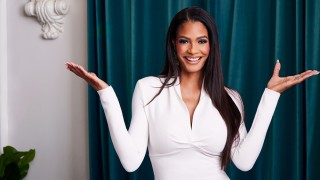Hint—it’s not bravado.
They may tell you it’s all in your mind. That “fake it until you make it” mentality, it’s something you’re taught early on. There’s a certain kind of person you will have to be, in order to get ahead, to get what you need and what. We look to the Diddy’s, to the Dame Dash’s of the world: there is a brashness, a loud assertiveness that is required for advancement, whether that’s the streets or the boardroom. Many of the tropes carried into a self-confidence we can use in practice, have been carried over from media, entertainment and pop culture. The kind of sheer arrogance that creates a fictional Gordon Gecko, or a real live Donald Trump, calls for a cutthroat “I will do whatever it takes” attitude. These are the traits we tend to attribute to confidence. And I’m here to tell y’all: nah.
I spent years wanting to be an alpha. I thought women wanted it; that, in order to survive in my hood, I had to be sure I was the funniest, the loudest, the leader of the pack. I had to be the smartest, the most talented, and have the most money. And all that stemmed from the idea that confidence was the magic pill that would get me there. And not just any regular ole type of confidence, but a super-confidence that would allow me to stand out from the crowd. And understand, confidence is good. However, what seems to have happened in today’s world is that confidence has become interchangeable with unruly, with rude, with crass behavior that leaves others in the wake of it all wondering “what just happened and how did we get here?” And that’s because we have started to confuse confidence with a sort of steadfastness that doesn’t question, doesn’t seek equanimity and balance, doesn’t leave room for a different kind of way of “making” it.
Confidence is being able to walk into a room, any room, and not having to size up the other individuals in it, because you are self-assured enough in your own capabilities. Real confidence is not guided by ego. The wrong kind of confidence is driven by it. A strong confidence is steered by clear intentions, and the sort of knowing that allows you to maneuver in the world without those maneuvers dictated by how others view and see you in the world. This is void of fake posturing and a puffed-out-chest mantra. Rather, true confidence is rooted in the stoic belief that who and what you are is enough, and therefore is not controlled by outside circumstances.
And, this should be a habitual, daily practice of honoring and loving others. Confidence doesn’t need to take advantage of others in order to boost one’s self-esteem. It doesn’t purposefully look to harm or inflict emotional or physical pain on others so as to avoid having to deal with your own lack of love or self-doubt. The confidence I’m talking about isn’t afraid to admit when it’s wrong; it can take criticism and critique and not feel the need to respond with unwise words and a sharp tongue.
Learning how to be more confident without confusing that confidence with harmful behavior is a slippery slope. Part of that is knowing that there will be slip-ups. It’s taken me all of my thirty-eight years to let go of this sort of false confidence that has its roots grounded in things that are more self-serving than they are for roles in leadership and community-building. Confidence doesn’t grow on trees, but trusting in the things that are inherent in you, regardless of what others may think or say, is where it starts.
So, maybe it’s not “fake it until you make it,” but more like “trusting who you already are” is really all that matters.
And that sounds pretty confident to me.
Joél Leon is a father, dreamer and storyteller. Follow him @joelleon.













